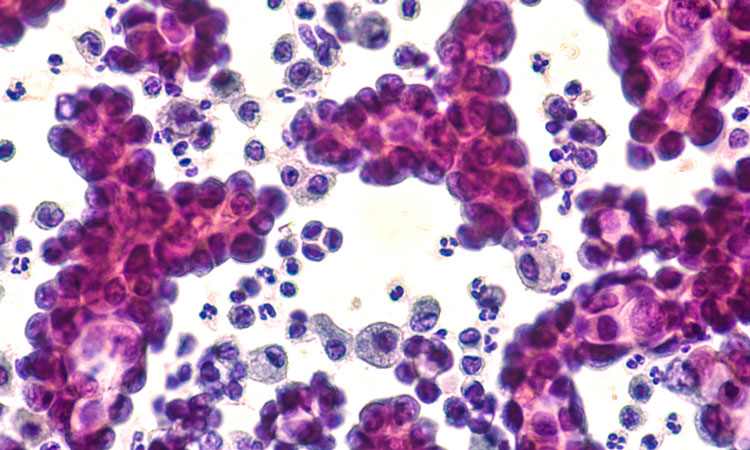Durvalumab improves survival of non-small cell lung cancer patients
Posted: 28 September 2018 | Iqra Farooq (European Pharmaceutical Review) | No comments yet
Moffitt researchers conducted a Phase III trial which found durvalumab to increase the survival of patients with non-small cell lung cancer…


According to recent Phase III clinical trial research, non-small cell lung cancer patients survive longer when their treatment includes durvalumab after platinum-based chemoradiotherapy.
Researchers at Moffitt Cancer Centre sowed that durvalumab improved progression-free survival by 17.2 months compared to a placebo, during the PACIFIC trial.
The drug received US Food and Drug Administration (FDA) approval in February, as a standard-of-care option for patients with stage 3 non-small cell lung cancer, where surgery cannot be performed, and where the cancer has not progressed following platinum-based chemoradiotherapy.
The therapy is an immune checkpoint inhibitor, that is administered intravenously, and aids T-cell activation by blocking the PD-L1 protein (programmed cell death ligand 1).
Initially the treatment received approval for locally advanced or metastatic bladder cancer, however Dr Scott Antonia, at the Department of Thoracic Oncology at Moffitt Cancer Centre, saw potential in the drug. Together with the manufacturers, AstraZeneca, a Phase III international, randomised, double-blind, placebo-controlled clinical trial was launched in 26 countries. It spanned 235 investigative sites, and enrolled over 700 patients.
“Approximately one-third of patients with non-small cell lung cancer have advanced stage 3 disease at the time of diagnosis. Standard treatment has been chemotherapy and radiation, but 85 percent of patients do not respond to the therapy,” said Dr Antonia. “Adding durvalumab to the standard treatment has made a big impact for this group of patients. It’s allowing them to live longer and potentially increasing their chance for cure.”
The clinical data is based on a 2 year follow up of participants in the clinical trial. The main findings of the researchers included 17.2 months with durvalumab compared to 5.6 months with the placebo.
The overall survival rate at two years was 66.3 percent with durvalumab, in comparison to 55.6 percent with the placebo. From the patients who had a response to durvalumab, 73.5 percent had an ongoing response at 18 months, whereas in the placebo group, 52.2 percent had ongoing responses after 18 months.
The data was published in the New England Journal of Medicine.
Related topics
Anti-Cancer Therapeutics, Clinical Development, Clinical Trials, Drug Development, Regulation & Legislation, Research & Development (R&D)









